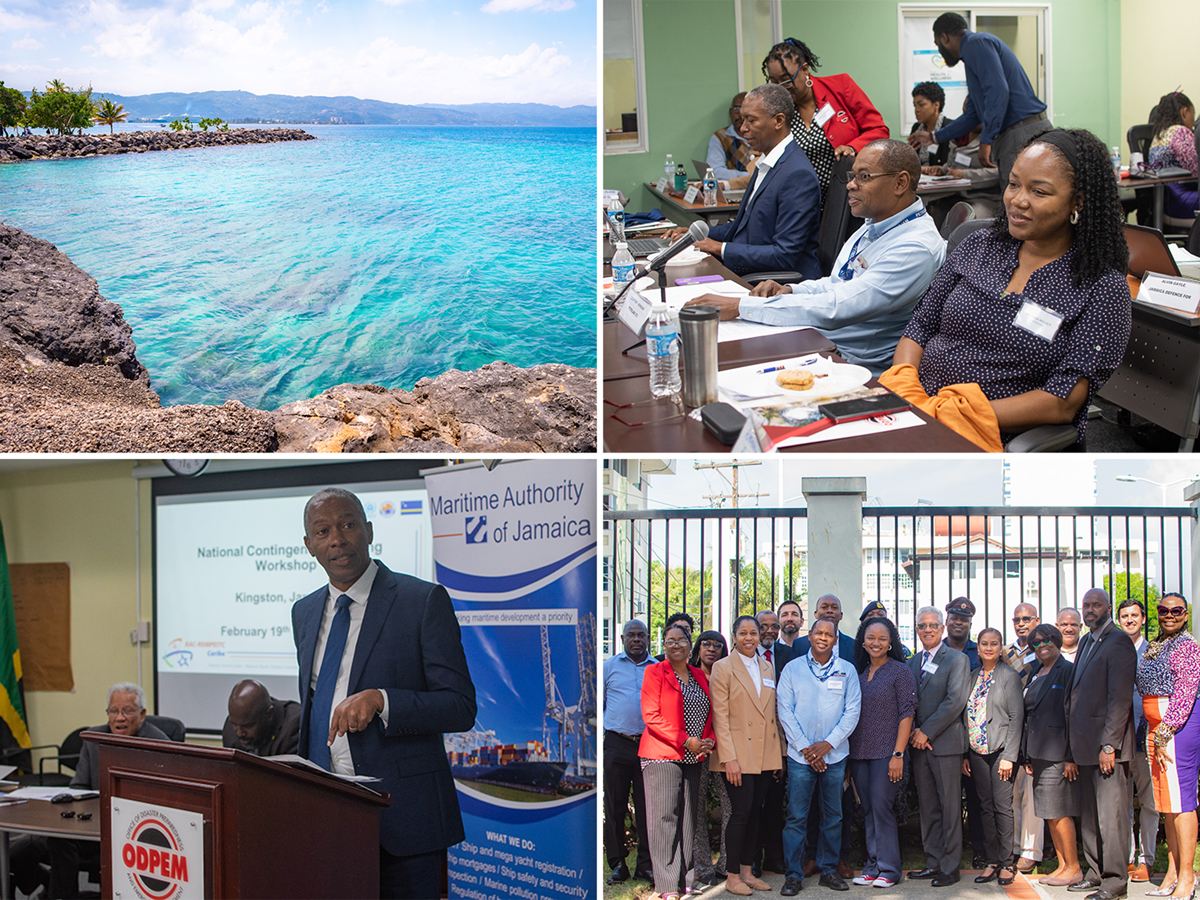Oil spill preparedness training is underway at a national workshop in Kingston, Jamaica (19-21 February) to help build capacity and test response systems so that necessary improvements to Jamaica's National Oil Spill Contingency Plan (NOSCP) can be identified and implemented.
A comprehensive, up to date and tested NOSCP is the foundation for an effective and sustainable oil spill preparedness and response framework. It also ensures effective implementation of the International Convention on Oil Pollution Preparedness, Response and Co-operation (OPRC) Convention.
The workshop is being delivered by a team from the Regional Marine Pollution Emergency, Information and Training Centre – Caribe (RAC/REMPEITC-Caribe) and IMO consultants, and brings together participants to discuss the impacts of oil pollution and its effect on the marine environment, the need for rapid decision-making, and the interface between national groups/agencies with other countries and the international community.
Through a series of lectures and case studies topics covered include an overview of response policies, management and structure, NOSCPs, roles and responsibilities, international co-operation, regulations and conventions, and liability and compensation. Key objectives of the workshop are for participants to develop i) a clear understanding of the an effective national plan to respond to oil spills, including communication procedures, and ii) an awareness of the roles and responsibilities that should be addressed prior to, and during, an oil spill.
Emphasis is also being placed on effective collaboration amongst numerous stakeholders, with the workshop providing an opportunity for participants to build their networks and foster a cooperative approach to oil spill preparedness and response. To facilitate ongoing development of an effective national oil spill preparedness and response framework, participants are drafting an action plan. The workshop is using the RETOS tool for assessing levels of oil spill preparedness, which will assist Jamaica to identify any gaps in its levels of preparedness and response.
The activity is being delivered through IMO's Integrated Technical Cooperation Programme (ITCP), in collaboration with the Maritime Authority of Jamaica, through RAC/REMPEITC-Caribe.
Hosted by the Government of Curaçao, and with activities largely funded by IMO, UNEP and the United Nations Development Program (UNDP), RAC/REMPEITC-Caribe assists countries to implement international conventions created to reduce pollution from ships.
